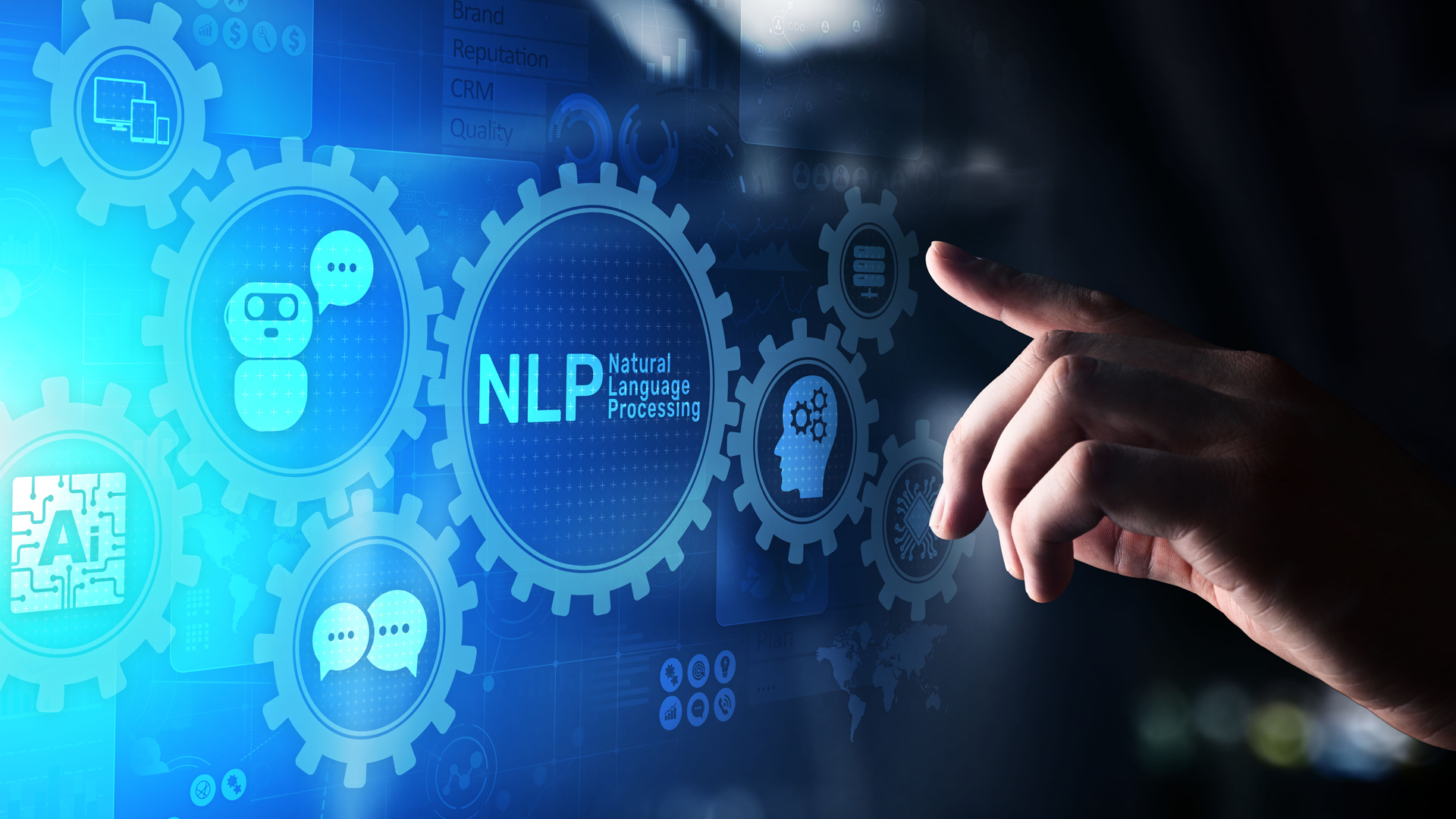Natural Language Processing: the future of the enterprise
NLP is at the heart of many applications, but how can it play a transformational role in business?

Recent years have seen artificial intelligence (AI) enter the mainstream. It is now the basis of a vast range of applications that leverage data to improve client relationships, realise cost efficiencies, strengthen security or make better business decisions. At the heart of many of these applications? Natural Language Processing (NLP).
Here we introduce NLP, some of its most popular applications today and how it can play a transformational role in your business.
What is NLP?
NLP is the foundation for much of the AI we use, both in our personal lives and across the enterprise – particularly when it comes to improving the customer and employee experience. A class within Machine Learning (ML), NLP deals with interactions between computers and human (natural) languages.
One of the most common examples are chatbots, employed by brands for dealing with customer interactions. These can determine the subject of a query or response, analyse its content, receive contextual information and even assess your mood.
NLP is becoming integral to the workplace as individuals use technology to find an answer to a question, make a call, schedule an appointment, transcribe or translate any voice file or document, among many other time-saving tasks.
What are some of the most common applications for NLP?
Apple Siri, Amazon Alexa, and more recently Google Duplex, are among the most widely-used examples of NLP, using the technology to deliver impressive human-machine interactions. Such is the popularity of these devices, there are expected to be eight billion digital voice assistants in use by 2023.
Over the next few years, it will become common for people to use these digital assistants to make payments, organise their finances, and even seek advice on how to save money.
Elsewhere there are applications that can transcribe voice into text in real-time. The software gets ‘smarter’ with continued use, automatically adding keywords and recognising a host of voices.
However, NLP is not just limited to voice communication. Online search, search autocomplete, spell-check — almost any feature that involves language incorporates NLP algorithms.
Organisations also use NLP-based technologies to understand customer behaviour and preferences. This type of sentiment analysis, also called opinion mining, can be applied to analysing social media or news and blogs, allocating a value to the content. It can help calculate emotions related to your brand or service to enable a better-quality engagement with customers.
What are the benefits to my business?
According to Gartner, AI will create $2.9 trillion in business value and 6.2 billion hours of worker productivity globally in 2021.
Most of that value will be realised by enterprises that implement the technology in functions such as sales management, customer service, manufacturing, and logistics – where NLP is already employed, and is increasingly easy for users to communicate with machine-learning interfaces.
A growing number of firms are already leveraging NLP and deep learning in the cloud to offer progressively simpler translations of business processes into workflows that deliver fast ROI.
Crucially, NLP is helping companies in virtually every industry to provide better customer service at scale without having to rely on the contact centre to resolve every customer query manually. It’s estimated that a quarter of customer service and support operations would be integrating virtual customer assistant (VCA) or chatbot technology across engagement channels in 2020. Providing exceptional service is key to growing a successful business today, especially in uncertain economic times such as these.
By using NLP and machine learning to suggest appropriate responses to customer enquiries, AI helps to manage customer interactions and drives improved operational efficiency, faster resolutions and more personalised customer engagement.
Another important point to note is that the current global health crisis has accelerated customer adoption of non-touch AI-based systems, such as voice assistants. More than three-quarters of customers (77%) expect to increase the use of touchless interfaces to avoid direct interactions with humans or touchscreens during COVID-19, and 62% will continue to do so post-COVID.
The fact that touchless interfaces are becoming integral to the customer experience in a health and safety-conscious world is also recognised by organisations: 75% believe that increasing customer appetite for non-touch practices will persist even in the post-pandemic world.
NLP forms the foundation for the future of enterprise. Speak to Merit today about leveraging the power of NLP for your business.
Get the ITPro daily newsletter
Sign up today and you will receive a free copy of our Future Focus 2025 report - the leading guidance on AI, cybersecurity and other IT challenges as per 700+ senior executives
ITPro is a global business technology website providing the latest news, analysis, and business insight for IT decision-makers. Whether it's cyber security, cloud computing, IT infrastructure, or business strategy, we aim to equip leaders with the data they need to make informed IT investments.
For regular updates delivered to your inbox and social feeds, be sure to sign up to our daily newsletter and follow on us LinkedIn and Twitter.
-
 Enterprises face delicate balancing act with data center sustainability goals
Enterprises face delicate balancing act with data center sustainability goalsNews High energy consumption, raw material requirements, and physical space constraints are holding back data center sustainability efforts, according to new research from Seagate.
By Emma Woollacott
-
 Cleo attack victim list grows as Hertz confirms customer data stolen
Cleo attack victim list grows as Hertz confirms customer data stolenNews Hertz has confirmed it suffered a data breach as a result of the Cleo zero-day vulnerability in late 2024, with the car rental giant warning that customer data was stolen.
By Ross Kelly
